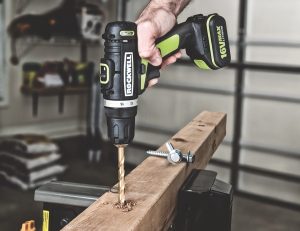Bolts are essential fasteners used in various applications, from construction to machinery. They come in different types, sizes, and materials, each designed to meet specific needs. This article will delve into the different types of bolts, their uses, and important considerations when selecting and using bolts. Additionally, we’ll explore how bolts interact with geosynthetic materials like geonet in construction projects.
What are the different types of bolts?
- Hex Bolts: These are the most common bolts with a hexagonal head. They are used in heavy-duty applications where high strength is required.
- Carriage Bolts: Characterized by a rounded head and square neck, carriage bolts are used in wood and metal connections.
- Lag Bolts: Often used for wood fastening, lag bolts have a hex head and are designed for heavy-duty applications.
- Machine Bolts: Typically used with nuts to fasten metal parts together, machine bolts are known for their versatility and strength.

What are the primary uses of bolts in construction?
- Structural Support: Bolts are crucial in providing structural support for buildings, bridges, and other infrastructure.
- Machinery Assembly: Bolts are used to assemble various machinery components, ensuring stable and secure connections.
- Vehicle Manufacturing: In the automotive industry, bolts play a key role in assembling vehicle parts and ensuring their durability.
- Furniture Construction: Bolts are commonly used in furniture assembly, particularly for items that require strong and reliable connections.
How do bolts interact with geosynthetic materials like geonet?
- Bolts are often used to secure geosynthetic materials such as geonet in geotechnical and civil engineering projects. Geonet is used for drainage and reinforcement, and bolts help in anchoring these materials to ensure stability and proper functioning.
- When working with geonet, bolts must be chosen carefully to match the material’s requirements, considering factors such as load-bearing capacity and environmental conditions.
What factors should be considered when selecting bolts for a project?
- Material: Choose the bolt material based on the environment and load requirements. Common materials include steel, stainless steel, and brass.
- Size and Thread: Ensure the bolt size and thread match the requirements of the application and are compatible with nuts and washers.
- Coating: Consider coatings or treatments for corrosion resistance, especially in harsh environments.
- Load Capacity: Ensure the bolt can handle the expected load to prevent failure or damage to the assembled parts.
Bolts are versatile fasteners integral to numerous applications, from construction and machinery to automotive and furniture manufacturing. Understanding the different types of bolts, their uses, and key considerations for selection is crucial for ensuring effective and secure connections. When dealing with geosynthetic materials like geonet, bolts play a vital role in providing stability and support. By carefully selecting the appropriate bolts based on material, size, and load capacity, you can achieve reliable and durable results in your projects.



